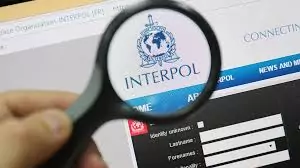The European Public Prosecutor’s Office (EPPO) plays a crucial role in investigating financial crimes that threaten the interests of the European Union. However, its jurisdiction is limited to the participating member states, which makes cooperation with non-participating EU member states and third countries essential for fulfilling its mandate. In today’s globalized economy, criminal schemes often cross national borders, impacting companies and individuals far beyond the EU’s territory. This reality requires the EPPO to extend its reach through international cooperation in order to effectively combat financial offences, such as cross-border VAT fraud and misuse of EU funds.
Cooperation with non-participating EU countries, such as Ireland, Denmark, and Sweden, as well as with third countries, including the United States, the United Kingdom, and Switzerland, is a complex process. The EPPO relies on mechanisms such as Eurojust, national prosecution services, and bilateral agreements to overcome legal and administrative barriers. Nonetheless, the lack of direct authority and the necessity of formal requests can slow down investigations significantly. Even so, international agreements on extradition and mutual legal assistance (MLATs) remain indispensable tools for overcoming these obstacles, though differences in legal systems and sovereignty concerns present ongoing challenges.
For businesses and individuals, understanding these processes is of critical importance. EPPO investigations can affect companies and persons even outside its jurisdiction, potentially leading to account freezes, extradition requests, and reputational damage. In such circumstances, professional legal risk assessments become essential to minimize potential threats and develop effective defence strategies.
Why the EPPO Must Cooperate Beyond Its Jurisdiction
The European Public Prosecutor’s Office (EPPO) is tasked with investigating financial crimes that harm the EU’s financial interests, and this mission inevitably crosses national boundaries. Its focus is on fighting crimes such as VAT fraud and the improper use of EU funds, which collectively cost the EU around €50 billion annually. However, the transnational nature of these crimes makes it necessary for the EPPO to collaborate with jurisdictions outside its direct authority.
Examples of Cross-Border Crimes
Consider a scenario in which a large U.S. corporation engages in a complex VAT evasion scheme involving several EU countries. Although the U.S. is not part of the EPPO system, its involvement in the scheme demands international cooperation for a successful investigation. In such cases, the EPPO depends heavily on international agreements on extradition and mutual legal assistance (MLATs) to gain access to crucial data and testimony, which may otherwise be beyond its reach.
The Importance of International Cooperation
International cooperation is an integral part of successful investigations. According to the European Commission, more than 60% of financial crimes within the EU are cross-border in nature. This underscores the need for close collaboration with both non-participating EU states and third countries. As Professor John Smith of Oxford University notes, “Without international cooperation, the fight against financial crime is doomed to fail.”
Some of the main benefits of international cooperation include faster information exchange, more effective investigations, and the ability to hold perpetrators accountable beyond EU borders. Still, the EPPO faces challenges such as divergent legal systems and the need to respect the sovereignty of partner countries. These challenges make international cooperation both necessary and complex.
How the EPPO Cooperates With Non-Participating EU Member States
Certain EU countries, such as Ireland, Denmark, and Sweden, have opted out of participating in the EPPO. Nonetheless, the EPPO is obliged to work with them to effectively investigate financial crimes. These countries have chosen to maintain the independence of their national legal systems, which creates unique challenges and opportunities for cooperation.
Mechanisms of Cooperation
The EPPO actively utilizes Eurojust—an EU agency created to strengthen coordination among national prosecutors. Eurojust acts as a bridge between the EPPO and non-participating countries, facilitating information exchange and coordinated actions. For example, in a recent VAT fraud case, the EPPO was able to quickly obtain crucial data through Eurojust, preventing losses of over €10 million.
Additionally, the EPPO establishes bilateral agreements with national prosecution services, enabling direct channels of communication and data sharing. However, the lack of direct authority in these countries means formal requests are still required, which can slow down proceedings. As noted by Professor Anders Karlsson of Lund University, “Formal procedures often become a barrier to swift cooperation.”
Challenges and Solutions
The lack of direct authority over non-participating states, along with the necessity of formal requests, remain key challenges. To address these, the EPPO is working on standard protocols designed to streamline and accelerate information sharing and cooperation.
Cooperation With Third Countries
Cooperation with third countries, such as the United States, the United Kingdom, and Switzerland, is equally vital for the EPPO. These nations, while not part of the EU, play a significant role in financial crime investigations due to their advanced financial systems and high volume of international transactions.
The Role of International Agreements
Mutual legal assistance treaties (MLATs) are the primary tool for exchanging information and evidence with third countries. For example, in a major money laundering case involving a U.S.-based corporation, the EPPO obtained essential documents within six months through an MLAT. However, as Professor Michael Johnson of Harvard Law School points out, “The speed and effectiveness of such agreements often depend on the political will and administrative capacity of the parties involved.”
Limitations of Cooperation
Third-country cooperation is limited by national sovereignty, differences in legal systems, and bureaucratic delays. A recent case involving tax evasion highlighted how Swiss banking secrecy laws delayed the EPPO’s investigation by over a year, emphasizing the need for more flexible and responsive mechanisms.

Why This Matters for Businesses and Individuals
EPPO investigations can significantly impact businesses and individuals, even outside its formal jurisdiction. Imagine a UK-based company doing business with EU partners, suddenly subjected to an EPPO investigation over suspected VAT fraud. This can lead to serious consequences, including account freezes and reputational damage.
Risks to Be Aware Of
Businesses and individuals may face frozen accounts, mandatory disclosure of confidential information, and reputational harm even if they are only indirectly involved in financial crime schemes. For example, in 2022, around 15% of EPPO requests involved entities registered outside the EU, illustrating the broad reach of its investigations.
Proactive awareness and preparation are crucial to minimizing the risks associated with EPPO investigations.
What to Do if You Suspect You Are at Risk
The lack of public EPPO investigation databases adds uncertainty for companies and individuals who may be under scrutiny. Companies exporting to the EU may not even realize that their financial operations are being monitored.
Key Signs to Watch For
- Unusual document or information requests from partners
- Delays or blocks in banking transactions
- Official notifications from European authorities
The Importance of Legal Risk Assessment
Professional legal assessment is essential. According to the European Lawyers’ Association, more than 70% of companies subject to EPPO investigations lacked prior legal support, which worsened their situation. Early consultation can significantly mitigate risks and help avoid severe consequences.
Recommended steps include conducting internal audits, seeking advice from international law experts, and preparing a response strategy in advance.
How We Can Help
We offer confidential risk assessments for companies that may be under EPPO scrutiny. Our experts analyze your financial operations to identify vulnerabilities, and we develop tailored action plans to reduce risk.
Examples of successful strategies include implementing internal audit controls and preparing legal responses to EPPO inquiries based on relevant EU case law. Timely action and professional guidance can significantly reduce your exposure.
Tools and Strategies for Risk Minimization
Compliance should be seen as a cornerstone of sustainable business. Effective internal control systems, periodic audits, and the use of specialized compliance software can help prevent financial crimes and build trust with partners and clients.
Modern tools accelerate due diligence, reduce human error, and enhance transparency—strengthening your competitive position.
Challenges and Opportunities Ahead
International cooperation remains a challenge for the EPPO due to differing legal systems and bureaucratic hurdles. Yet there is also potential for improvement through standardized procedures, technology, and training.
As global financial flows become more interconnected, the EPPO will need to adapt and evolve to meet new challenges. Closer integration and data sharing are likely to define the future of international legal cooperation.
Conclusion
The European Public Prosecutor’s Office (EPPO) is a vital institution for safeguarding the EU’s financial interests. For companies and individuals engaged in cross-border operations, understanding and addressing the risks of EPPO investigations is essential. Proactively implementing internal controls, seeking expert legal advice, and preparing effective strategies can protect your business and strengthen stakeholder confidence.
In a world of increasingly complex financial flows, being prepared for EPPO scrutiny can make the difference between resilience and crisis. Contact our team today to arrange a confidential consultation and stay one step ahead of the risks.

On June 23–24, 2025, the picturesque Lake Iseo in Italy hosted the 8th International Seminar on Extradition and the European Arrest Warrant (EAW), organized by the European Center for Continuing Legal Education (ECCLE). Since 2016, this exclusive two-day event has become one of the most important forums in Europe for professionals working at the intersection of criminal defense, human rights, and international cooperation.
This year’s program featured intensive sessions on international and domestic extradition procedures, recent case law from the ECtHR and the Court of Justice of the European Union, and in-depth legal analysis of high-profile cases such as Julian Assange. Special attention was paid to unlawful or disguised renditions, including deportation under political pressure and the misuse of expulsion powers.
The seminar followed a “learning-by-doing” method, combining lectures, roundtable discussions, case simulations, video analysis, and peer exchange in a closed-door setting with legal professionals from over 20 countries.

We are proud to announce that four members of our international legal team were invited to speak at this prestigious seminar:
- Dmytro Yarovyi, a recognized authority in defending clients against Red Notices and extradition proceedings;
- Tarek Muhammad, a human rights expert specializing in politically motivated cases in the Middle East;
- Melisa Kurter, a U.S.-based extradition attorney with extensive experience in European court practice and humanitarian defenses;
- Kristina Abdel Ahad, an international law consultant with expertise in political asylum and Interpol challenges.
Each of our attorneys contributed unique insights drawn from real-life legal battles and offered practical strategies for opposing extradition, analyzing due process violations, and framing arguments that align with international human rights norms.
Extradition Remains a Critical Human Rights Issue
In the United States and globally, extradition law continues to evolve amid concerns over fairness, procedural integrity, and the growing use of Red Notices to pursue individuals across borders. For many, extradition can mean not justice, but injustice — especially in cases involving political dissent, systemic abuse, or fear of torture.
Our international legal team offers robust support for individuals facing extradition requests. From initial arrest to international appeals, we guide clients through every step of the legal process, helping them assert their rights before domestic and international courts. We work with Interpol, refugee bodies, and human rights organizations to ensure protection against unjust prosecution.
If you or someone you know is at risk of extradition, we are here to help — with global experience, legal precision, and a firm commitment to human dignity.

In today’s interconnected world, individuals and companies increasingly face complex international legal issues. From extradition cases to sanctions compliance and Interpol notices, navigating these matters requires expert guidance and experience. Our firm specializes in providing professional support in cross-border legal challenges, ensuring that clients understand their rights and options while mitigating risks.
For those dealing with international legal alerts, our Interpol Legal Services page provides a comprehensive overview of our support. We assist clients with Extradition Services, ensuring proper representation in cases that involve transferring individuals across borders according to international treaties.
When an individual is subject to a Red Notice Removal, we provide tailored strategies to challenge and remove such notices, including preventive measures through our Preventive Red Notice Request service. For businesses or individuals impacted by global sanctions, our Sanctions Legal Support and OFAC Legal Assistance services help ensure compliance and provide guidance on mitigating exposure to penalties.
Our team also advises on Interpol Red Notice Guidance and Blue Notice Information, helping clients understand the implications of notices issued by law enforcement agencies worldwide. Through Interpol Diffusions, we assist in managing international alerts and communications.
Data access and transparency are crucial in managing international legal matters. Our Interpol Data Access Request service allows clients to request information that may impact their case. For situations involving International Arrest Warrants or protective notices such as Green Notice Overview, we provide professional legal representation.
Cross-border financial issues are increasingly complex, requiring specialized expertise. Our Cross-Border Asset Recovery service assists clients in recovering frozen or misappropriated assets internationally. We also handle Silver Notice Details and Yellow Notice Information for cases involving vulnerable or missing persons.
For corporate and individual clients facing allegations of White Collar Crime Defense, our team provides strategic defense planning and litigation support. We also champion Human Rights Protection in cross-border legal contexts, ensuring compliance with international law.
Clients listed on the Interpol Wanted List can seek our guidance to clarify legal standing and pursue proper remedies. We also provide country-specific extradition support, including Extradition from Spain to UK, Germany to UK, US to UK, Turkey to UK, France to UK, China to UK, and Thailand to UK.
We also provide services for sensitive records and public databases. Our US NCIC Data Removal and Megan’s Law Record Removal services help clients manage their legal footprint. For complex financial investigations, our Cross-Border Asset Recovery and Investigations service ensures international enforcement cooperation and effective recovery.
Finally, our Strategic Intelligence & MLA Advisory service supports clients in navigating mutual legal assistance frameworks and strategic information sharing, crucial for both corporate compliance and individual defense in international matters.
Navigating global legal challenges requires expertise, experience, and proactive strategies. Our services are designed to provide clarity, protection, and actionable solutions in the complex landscape of international law, Interpol notices, and cross-border financial matters.

Being on an international wanted list, especially through INTERPOL, can have serious legal consequences that restrict freedom of movement and threaten arrest. But how can you find out if your name is on the INTERPOL wanted list?
Although there is no official database available to the public, there are several ways to obtain this information and make sure you are wanted by the International Criminal Police Organization. Experienced Interpol lawyers will check for an Interpol Red Notice and help you find out whether you have an international arrest warrant while protecting your rights.
What is the Interpol Wanted List?
The Interpol Wanted List is an international database that contains information about persons wanted by law enforcement agencies in different countries for prosecution or execution of a sentence. Persons included in this list are subject to international search according to requests from member countries through an Interpol Red Notice. However, a Red Notice is not an arrest warrant but serves as an official request to member states to locate and arrest a person pending extradition.
To check for a Red Notice against a person or to confirm the information in the international wanted list, specialized INTERPOL lawyers with experience in International criminal law are often needed to help understand the status of the wanted list and legal options for defense.
What Gets You on the INTERPOL List?
Individuals can be placed on the INTERPOL wanted list for various reasons, usually related to a serious ordinary law crime. The main categories of crimes that a member country can initiate an international search to seek the assistance of law enforcement worldwide through Interpol red notices are:
- Terrorism: Individuals suspected of committing terrorist acts, organized crime or being involved in terrorist organizations may be listed. INTERPOL is actively working to identify such criminals to prevent security threats.
- Drug trafficking: Suspects in the production, distribution, or trafficking of drugs are often listed. Drug trafficking is an international crime that requires coordinated cooperation between countries.
- Human trafficking: Crimes involving the exploitation of people, such as sexual exploitation or forced labor, are serious offenses for which Interpol can issue a red notice.
- Murder and attempted murder: Persons suspected of murder or attempted murder can be listed so that they can be detained in any country.
- Fraud: Includes various forms of financial crimes such as money laundering, financial fraud, and other deceptive acts that harm individuals or organizations.
- Cybercrime: In today’s world, cybercrime, such as hacking into computer systems, identity theft, and online fraud, is becoming increasingly common. That can also lead to listing on Interpol’s wanted list.
Being placed on the INTERPOL wanted person list is usually associated with the existence of a valid arrest warrant in the member country where the person is suspected of committing a crime. However, Interpol lawyers with a deep understanding of Interpol’s rules can assist in managing the legal consequences if a person is wanted internationally.
How Do I Check if I’m on INTERPOL?
There are several ways to find out if you are on the INTERPOL wanted list. First, visit the official INTERPOL website, where you will find information about the INTERPOL Red Notices and wanted persons. However, not all wanted persons may be listed there, as some cases may be confidential.
If you are not listed on the site, or you suspect you may be wanted, send a request to INTERPOL through your national police. They can make the request and provide official information about a possible arrest warrant on Interpol’s databases.
It may also be advisable to contact Interpol lawyers. They will submit an official request to the Interpol Commission for the Control of Files (CCF) and find out if you are on the international wanted list. The latter method is considered the most reliable. And if the notice does exist, the lawyers will help to remove it.
What Happens If You Are Wanted by INTERPOL?
If you are wanted by INTERPOL, it can have serious consequences. You are most at risk of being detained. Having an INTERPOL Red Notice means that law enforcement authorities in INTERPOL member countries can provisionally arrest you pending extradition proceedings if you come under their control, for example, during a document check at the airport.
Once detained by law enforcement officers, you may be taken to the local police. If there is an arrest warrant, your case will be reviewed and you may be detained for a period of time that depends on the judicial authorities of the country of detention. It is important to remember that INTERPOL cannot make arrests on its own; this is done by law enforcement agencies in member countries.
The second important consequence is extradition. If the country of detention has an extradition agreement with the requesting country, you may be extradited for further prosecution.
In such a situation, contacting Interpol lawyers is important. Lawyers specializing in international law can provide legal assistance, represent your interests, and help you avoid extradition if possible. They will also provide information about your rights and options.

Call INTERPOL Red Notice Lawyers
If you are wanted by INTERPOL or suspect that an INTERPOL Red Notice has been issued against you, seek expert advice immediately. Interpol Red Notice Lawyers specialize in international law and can provide support in this situation.
Experienced lawyers will help you:
- Assess your situation: They will analyze to find out if you are at risk of detention or extradition.
- Protect your rights: Represent your interests in court and ensure that all legal procedures are followed.
- Prepare documents: Assist in preparing requests or appealing red notices.
- Consultations on extradition: Provide information on extradition procedures and how to appeal if you are detained in a country with an extradition treaty.
Do not wait until the situation gets worse. Contact INTERPOL Red Notice Lawyers as soon as possible to protect your rights and freedom.

How to Check Interpol Red Notices?
Visit the official Interpol website to check for a Red Notice. Not all wanted persons can be listed there, as some cases are confidential.
How do I know if I am wanted by Interpol?
To find out if you are wanted by Interpol, check the Interpol dabases through their official site or send a request to the Commission for the Control of Interpol Files (CCF).
Are Interpol Red Notices always public?
Not all Interpol Red Notices are publicly available and accessible on the Interpol website. Some data on Interpol notices is confidential and limited in access.
The possibility of being arrested at the airport exists, and this is a concern for many travelers. It is important to understand that airports are high-security environments where law enforcement agencies have the right to check passengers and their luggage for dangerous items or illegal substances.
If you have an open arrest warrant or are suspected of committing a criminal offense, you may be detained at the airport security checkpoint. Having an Interpol red notice can also affect your detention if you are trying to enter a country that has an extradition treaty. These airport arrests have severe criminal charges and the punishment varies according to your case.
Can You Get Arrested at the Airport If You Have a Warrant?
If you have a warrant issued against you, you can be arrested at the airport, and there is a high probability that you may be detained during security screenings, awaiting further legal proceedings. The warrant can be issued in different countries and is related to serious crimes that concern both local and international offenses.
When you check in for a flight or go through airport security screenings, your information is automatically checked against various databases that law enforcement agencies have access to. These databases contain information about outstanding warrants or red notices that may indicate your involvement in criminal cases.
If the screening process reveals that you have an outstanding warrant, for example, in connection with a violation of laws in another country or based on an international Interpol red notice, you may be detained at the airport. This can happen even if you do not suspect that there are outstanding arrest warrants against you, as the information may not be known to the person but is already recorded in international databases.
In case of detention in such a situation, it is important not to panic and immediately contact an experienced criminal defense attorney who specializes in such cases. The criminal defense attorney will help you understand the situation, explain your rights, and provide support during the legal process. Seeking legal counsel is particularly important as it can significantly reduce the risks of serious consequences, such as extradition or prolonged detention without a court order.
What Happens When Someone Gets Arrested at an Airport?
What happens when someone gets arrested at the airport? Usually, the process of checking documents and confirming information about the outstanding arrest warrant begins. Airport security personnel or law enforcement can arrest you if it is confirmed that the person is under an arrest warrant. The person is then taken to the local police station for further legal proceedings.
In such cases, it is important to contact experienced criminal defense attorneys for legal representation, especially if the arrest is related to international warrants or an Interpol red notice. Your legal defense team will help you understand your rights and ensure proper legal protection.

Temporary Arrest
Temporary airport arrests can be applied by immigration officials or customs enforcement agencies when there are suspicions about your identity or documents. For example, if the security system checks raise doubts about the authenticity of your passport or visa, or if you are suspected of international crimes. One of the main reasons for temporary detention is the presence of an active warrant or Interpol red notice, which signals an international wanted list.
During such arrests, you may be temporarily held at the airport detention center to clarify all the unique circumstances of your case. This does not necessarily mean an arrest, but you will be restricted in your movement until all checks are completed. Temporary airport detention allows law enforcement officers to obtain additional information from databases such as Interpol or national law enforcement agencies. This is especially true if your person is suspected in connection with international criminal cases like drug trafficking.
After being detained at the border, the person is taken for court proceedings, where the issue of his or her further detention is considered within 60 hours. If an extradition request from Interpol has not yet been received, the prosecutor files a motion for temporary arrest for up to 40 days. The court has 72 hours from the moment of detention to consider this issue and make a decision: either to detain the person for the specified period or to release him or her if there are no grounds for further detention.
Contact us now!
Your situation requires immediate action. Contact our lawyers for a free consultation at [email protected]
and learn what legal tools can help you remove the notice and protect your rights.

Can you Get Arrested at the Border?
Detention at the border can occur for a variety of reasons, including if a person is found to have illegal drugs or if found carrying prohibited items during an inspection. Often, a person may be detained while attempting to cross the border or while presenting invalid documents.
Another reason for an airport arrest may be the existence of outstanding warrants or an Interpol red notice, which signals the need to detain a person for further extradition. In such cases, airport police or law enforcement officers at the border can immediately take measures to arrest the person, and the fate of the detainee is decided through the court.
Which prohibited items can lead to airport arrests?
Some examples of prohibited items that can get you arrested at the airport by TSA officers include weapons, explosives, flammable materials like crackers, chemicals or toxic substances, and corrosive materials. You can also check the Transportation Security Administration (TSA) website to familiarize yourself with their guidelines and avoid further complications.
Call Interpol Lawyer
If you find yourself in a situation where you may be arrested at the airport, you should remain silent and immediately contact professional Interpol lawyers for a more favorable treatment. Only an experienced criminal defense attorney can provide timely assistance, explain your rights, and protect you from the potential consequences that follow an airport arrest.
Do not risk your freedom – it is better to contact an experienced lawyer who specializes in international law and airport arrest cases for a strong legal defense strategy tailored to your needs. Call now to get a consultation and protect your interests today.

The International Criminal Police Organization (INTERPOL), is the world’s largest intergovernmental organization, bringing together police forces from over 195 countries. Its mission is to facilitate international police cooperation between local law enforcement agencies from different countries to make the world a safer place.
Despite its global reach and status, many people wonder whether Interpol can arrest. But how does this organization help in apprehending criminals and can it arrest them? Let’s take a look at what crimes INTERPOL deals with and whether INTERPOL pursues specific individuals.
What is INTERPOL?
INTERPOL (International Criminal Police Organisation) is a global organization that coordinates the cooperation of national law enforcement agencies from more than 190 countries to fight international crime. INTERPOL facilitates the exchange of information on suspects, wanted persons, and arrest warrants by providing tools such as the Red Notice, which is an international alert that notifies law enforcement agencies in member countries of a person wanted in connection with a crime.
A Red Notice is not an arrest warrant but serves as a request to INTERPOL member states to detain a person pending extradition to the country where he or she is charged. However, it is important to note that INTERPOL does not have arrest powers and does not make international arrests on its own.
INTERPOL’s role is to coordinate global police cooperation and provide access to resources, such as databases, which allow member countries to exchange information on arrest warrants. INTERPOL lawyers are also important in helping internationally wanted persons to protect their rights.
Can INTERPOL arrest criminals in any country?
INTERPOL’s capabilities are limited to ensuring cooperation between local law enforcement agencies of different countries but do not include direct arrests. The question of whether INTERPOL can detain someone on its own is not relevant, as this function remains the responsibility of the national law enforcement agencies of each country.
This international organization provides information through its notices, such as the INTERPOL Red Notice, which informs member states of persons wanted on a warrant issued in another country. However, the final decision on detention rests with local authorities, who are guided by national law. Thus, although INTERPOL can assist in locating a person, the actual arrest is always made by local law enforcement officers per their own legal regulations.
Does INTERPOL pursue specific individuals?
INTERPOL can focus on specific individuals, but its role in prosecution is limited to issuing alerts, such as INTERPOL Red Notices, which inform law enforcement authorities in member countries that an individual should be apprehended based on a lawful arrest warrant from the initiating country. Red Notice alerts are an important mechanism for informing states of persons wanted for prosecution or enforcement, but they do not provide a right of arrest and do not constitute an international arrest warrant. INTERPOL only acts in response to a request from a member country and does not have unilateral authority to prosecute someone internationally.
On the other hand, INTERPOL channels allow for the rapid dissemination of information about wanted persons, including diffusions, which are often used for critical situations and provide rapid information exchange about serious ordinary law crimes or suspects. Although less formal, these notices function similarly to red notices, allowing member states to act in cases where a case requires immediate action.
Interpol’s arrest powers are limited to lawful cooperation between countries. Participating countries must confirm that the Red Notice is per domestic laws and does not violate Interpol’s constitution, which prohibits activities of a political, military, religious, or racial nature. In this way, Interpol promotes international legal cooperation without making arrests directly but by ensuring that states cooperate based on clear standards.

What crimes does INTERPOL deal with?
INTERPOL deals with a wide range of crimes that require close international cooperation between states. Important areas of its work include the fight against terrorism, human trafficking, drug trafficking, and cybercrime. These crimes regularly cross state borders, so their successful investigation depends on the active exchange of information and cooperation between member states.
In the fight against terrorism, INTERPOL provides analytical and technical assistance, coordinating the actions of law enforcement agencies from different countries. The organization creates opportunities for the exchange of important information on criminal groups involved in human trafficking, as well as for tracking drug trafficking. In this area, Interpol’s arrest powers depend on the local law enforcement agency, but through resources such as the Interpol red notice, the organization can help countries identify and prosecute suspects.
Cybercrime is also an important part of INTERPOL’s work, as online crime has become widespread in today’s globalized world. The organization supports its member countries in the fight against cyber threats by training specialists, providing information support, and helping to coordinate actions against international cyber criminals.
Contact us now!
Your situation requires immediate action. Contact our lawyers for a free consultation at [email protected]
and learn what legal tools can help you remove the notice and protect your rights.

Can Interpol target specific individuals?
While Interpol agents can’t make international arrests, the organization can target specific people involved in international crimes through red notices and diffusions. That can lead to the temporary detention of an individual at the request of a member country through its national central bureau. However, the decision to extradite a person sought by a red notice depends on the judicial authorities of the arresting member state.
Contact Interpol Lawyer to protect your rights
If you or your loved ones are at risk of receiving an arrest warrant or an Interpol Red Notice, it is important to contact Interpol lawyers immediately. Experienced lawyers specializing in international law and Interpol’s red notice will help you understand the complex legal situation and explain how to protect your rights in the event of a possible arrest.
INTERPOL does not have the authority to make arrests on its own, but notifications through its system may affect your freedom of movement. Professional legal support will help reduce the risks of extradition or detention in other countries. Do not wait until the situation becomes more complicated. Contact an Interpol lawyer now to get advice and ensure reliable protection in matters related to Interpol’s arrest warrant powers.

INTERPOL or the International Criminal Police Organization, is an important global organisation that ensures law enforcement cooperation in the fight against international crime. Although most countries in the world are members, some countries are not members of INTERPOL. This is due to political, legal or other factors that make it difficult for them to participate in the organization.
In this article, we will look at which countries are not part of Interpol and why this is important for understanding international security.
Interpol Member Countries
Interpol (International Criminal Police Organisation) is the world’s largest police organization that links national police organizations in 196 member countries to fight international crime. While it does not have the authority to initiate police investigations or make arrests on its own, it serves as an important link between national law enforcement agencies, providing information exchange and coordination.
Most countries in the world are members of the international criminal police organization (INTERPOL), which allows them to access the international database and cooperate in investigating crimes. Membership in Interpol provides member countries with the ability to issue Interpol Red Notices to track down criminals hiding abroad. However, it is important to note that non-member countries do not have direct access to this global network.
Interpol’s Authority
The International criminal police organization (Interpol) does not have the authority to arrest individuals, as its functions are limited to coordinating cooperation between national law enforcement agencies. This international organization provides support in the investigation of crimes and the exchange of information but cannot carry out law enforcement or arrests.
Each member state decides how to respond to INTERPOL red notices. This means that this Inter-governmental organization can request the detention of persons suspected of committing crimes, but the decision to arrest is made by national courts or law enforcement agencies. As such, INTERPOL’s powers in countries are limited to International cooperation, and it acts as a mediator in cross-border human rights cases.
Its member countries have an Interpol national central bureau that connects their national police forces with this global network. However, if a country is not a member of INTERPOL, it can still cooperate with the organization by participating in certain operations and exchanging information.

What countries are not part of INTERPOL?
While INTERPOL boasts a membership of 196 member countries, there are a few nations that are not part of this international policing organization.
Member states of the United Nations:
- Palau
- Tuvalu
- Micronesia
Partially recognized states and organizations:
- Taiwan
- Abkhazia
- Northern Cyprus
- Saharan Arab Democratic Republic
- South Ossetia
- Sovereign Military Order of Malta
Unrecognized territories:
- Somaliland
- North Korea
- Transnistria
- Nagorno-Karabakh (Artsakh)
The lack of membership in Interpol means that these countries cannot use the full range of opportunities and investigative support provided by the organization, particularly in communicating with other law enforcement agencies. This also affects the processing of arrest warrants, international searches, and extradition requests.
Contact us now!
Your situation requires immediate action. Contact our lawyers for a free consultation at [email protected]
and learn what legal tools can help you remove the notice and protect your rights.

Benefits of membership in INTERPOL
Interpol members receive significant benefits in their bid to fight transnational crime. For starters, Interpol member countries have access to a global database that allows them to quickly exchange information about criminals and crimes. This is particularly important for countries facing problems with INTERPOL Red Notices.
Secondly, INTERPOL promotes cooperation between national law enforcement agencies, which allows for an effective response to international threats such as terrorism, human trafficking and drug crime. Membership also provides countries with access to training and resources that increase the professionalism and effectiveness of law enforcement, as well as support from Interpol lawyers.
Non-Member countries, of course, miss out on these opportunities. Interpol membership also provides countries with support in matters related to arrest warrants, making them more effective in tackling transnational crime.
Assistance of Interpol Lawyers
Handling the complexities of INTERPOL-related matters demands expert legal knowledge. Our dedicated team of INTERPOL lawyers provides in-depth support for individuals dealing with Red Notice removal requests, international arrest warrants, and preventive measures.
With a strong history of successfully challenging and removing Red Notices, our attorneys are skilled in advocating for clients facing these international legal obstacles. We also assist in filing preventive requests with INTERPOL to block the issuance of Red Notices or other alerts that could be based on unsubstantiated or politically motivated claims.
Contact our experienced INTERPOL lawyers. We are committed to offering the guidance and support necessary to address these challenging situations and safeguard your rights.

Europol and Interpol are often perceived as similar organizations, as they are both involved in the fight against crime, but they differ significantly in terms of their functions and geographical coverage. Interpol has a global reach and brings together countries from all over the world, while Europol focuses exclusively on the borders of the European Union.
What is Interpol?
Interpol is a global organization established in 1923 to promote cooperation between police forces and national authorities from different countries in the fight against international crime. Its activities cover a wide range of crimes, including terrorism, drug trafficking, child sexual abuse, cybercrime, and human trafficking. It aids in international law enforcement even where diplomatic relations are absent.
Headquartered in Lyon, France, INTERPOL has seven regional offices and a National Central Bureau in each member country, with the UK bureau located in Manchester’s NCA office. It consists of a General Secretariat responsible for day-to-day operations and a General Assembly that meets once a year to make important decisions.
Despite its effectiveness, Interpol does not conduct its own investigations and has no arrest powers. Its main role is to facilitate the exchange of information and coordinate the actions of national and other police forces and international law enforcement agencies. One of its key tools to achieve that is the Red Notice, or international arrest warrant, which is a request for the detention of persons wanted for extradition or prosecution.
What is Europol?
Unlike the INTERPOL (international criminal police organization), Europol is a law enforcement agency operating within the European Union agency and can also be defined as the European Police Office. This is the official intelligence agency of the European Union.
Europol was established in 1998 to fight organized crime and terrorism in EU member states. Its activities focus on crimes that cross EU borders, such as drug trafficking, human trafficking, financial fraud, and cybercrime. Europol’s structure consists of operational and analytical units that provide member states and other law enforcement agencies with the necessary support in their investigations.
Although Europol, like Interpol, does not have the power to make arrests or conduct investigations on its own, it acts as a key platform for information exchange and cooperation, helping EU law enforcement agencies to tackle crime jointly.

Key differences
Interaction between police forces worldwide through Interpol and Europol is possible regarding international crime, covering both EU and non-EU countries. However, it is important to remember that there are significant differences in functions and geographical jurisdiction between police agencies.
one of the key points that define Interpol Europol differences is their approaches to fighting organized crime. As such, anyone who needs legal assistance, or criminal information, including advice from Interpol lawyers liaison officers, or the Europol information system should contact specialists who understand the specifics of the work of both organizations.
The main difference between Interpol and Europol is their scope of action. Interpol operates globally and covers more than 196 countries, while Europol focuses only on EU member states. This is reflected in the geographical area of their operations and their approach to work.
Interpol specializes in criminal intelligence and issuing ‘red notices’, which are international requests for the arrest and extradition of individuals, while Europol provides operational and analytical support in criminal investigations within the member countries of the EU.
INTERPOL covers a wide range of crimes, including terrorism, organised crime, money laundering, cybercrime, and other forms of international crime. Its main goal is to coordinate cooperation between national and international law enforcement and agencies and to facilitate the extradition of criminals.
Europol, the international criminal police commission on the other hand, specializes in crimes affecting the security of the European Union and criminal activities such as illegal migration, human trafficking, cybercrime, and terrorism-related threats.
Contact us now!
Your situation requires immediate action. Contact our lawyers for a free consultation at [email protected]
and learn what legal tools can help you remove the notice and protect your rights.

Broader coverage vs specialization
If we compare Interpol vs Europol, Interpol has a much wider geographical reach. It unites countries and international police organizations from all over the world, providing international support in investigations and searching for criminals. This international approach makes INTERPOL an indispensable organization in the fight against global crime.
Interpol’s function is to ensure close cooperation between law enforcement agencies of different countries and the exchange of information, which is critical for crime prevention and the apprehension of international criminals.
In contrast, Europol has limited jurisdiction over various crimes, focusing on security issues within member countries of the European Union. Its work is to support the member countries and states in the fight against organized crime, terrorism, and cybercrime. Although Europol has a less extensive reach, its specialization in specific crimes makes it a key player for member countries in maintaining EU security.
Contact Interpol lawyers
If you are faced with legal issues related to Interpol’s activities or need assistance with international criminal law enforcement matters, it is important to contact experienced Interpol lawyers. Our specialists will help you understand the legal aspects of your situation and provide you with the necessary support in matters of international criminal law enforcement, cooperation agreement, police organization, or search.
Don’t risk your freedom and legal security – contact lawyers who know the specifics of Interpol’s work and can provide expert advice today.

Update 2026: This article has been reviewed and updated to reflect the most current legal information available in 2026 regarding travel restrictions, flight risks, and warrants, ensuring accurate and up-to-date guidance.
Having an arrest warrant raises a lot of questions about your ability to travel. One of these common questions is whether you can fly with a warrant and whether you can be detained by the airport security personnel.
In most cases, when a person has only one warrant and is planning a domestic flight, there may be no difficulties in boarding a plane. But can someone with a warrant fly without risking arrest upon arrival at their destination?
Well, flying with a warrant may attract the attention of local law enforcement authorities, while attempting to leave the country looks like an evasion of responsibility. A federal warrant will also lead to your arrest because the airport security checkpoint must verify your identity across national databases for passenger safety.
What is an Open Arrest Warrant?
An open arrest warrant is a legal document issued by a court that allows the detention of a person suspected of committing a crime. It confirms that the person is to be detained for investigation or trial. An open warrant may be issued due to:
- Suspicion of committing a crime.
- Failure to comply with the terms of probation.
- Failure to attend a court hearing.
Having an outstanding warrant makes traveling difficult, as a person can be detained at any time. If you have an open warrant, contact an Interpol lawyer for advice on how to manage the legal consequences.
Can You Get on a Plane When You Have Warrants?
It is possible to board a plane with an outstanding arrest warrant, but there are risks involved. Many airports have screening systems that can detect a person with a warrant. Here’s what to consider:
- Security checks: When going through the security checkpoint, you may be asked for documents. If the system detects an open warrant, you may be detained.
- Diplomatic conditions: If you are planning to travel abroad, countries may check for entry warrants at the arrival airports. Some countries will not accept you if you have an open warrant in your home country.
- Risk of detention: Even if you successfully pass through security at the origin airports, you may be detained during your flight or at international security at your destination airport.
If you have any doubts about whether you can fly with a warrant, consulting an extradition lawyer can help assess the risks.
Arrest and Extradition
If you board a plane with an existing warrant, the most immediate risk is facing arrest. While TSA and airport security staff do not routinely check for outstanding arrest warrants, they sometimes do conduct background checks, making it difficult to anticipate whether your information will be reviewed. This means any encounter with local law enforcement could lead to an arrest if there is an active warrant against you.
Additionally, traveling to a different state with a felony warrant could lead to extradition. If you reach a destination outside the state that issued the warrant, authorities there may send you back to that state, where you could be held in custody until your legal case is resolved.

Does the Airport Check For Warrants?
Airports do not conduct special checks for active warrants, but they may review passenger data during check-in or security checks. If this check reveals that you have an outstanding warrant or a red notice, it may result in detention. This is especially true if you are attempting to enter a country with an extradition treaty, where you may be taken into custody immediately.
If you have any questions about whether you can fly with a warrant, remember to check for open warrants before you travel to avoid any problems.
Does TSA Check For Warrants?
The Transportation Security Administration (TSA) in the United States does not specifically check for arrest warrants. However, TSA can cooperate with law enforcement agencies and share information about passengers if there is a suspicion of criminal activity.
If you are trying to pass through security and have any outstanding warrants, you may be at risk of detention. If your information appears in databases available to law enforcement, you may be stopped during the screening process.
International vs. Domestic Flights
If you are planning to travel on an international flight, the risk of being arrested increases significantly. When returning from international flights, you must pass through customs, where they may check if you have outstanding warrants. This means that if you are returning to the country from an international flight and have a warrant, you can be arrested immediately upon arrival.
When flying domestically with open arrest warrants, the situation is different. There is no such strict check for warrants. However, if you interact with the airport police, they may find out about your outstanding warrants, which could lead to detention.
The question of whether can you fly with a warrant becomes critical in this situation. Remember that when traveling with an outstanding warrant, there is always a risk of arrest, so you should think carefully about your decision before flying.
Contact us now!
Your situation requires immediate action. Contact our lawyers for a free consultation at [email protected]
and learn what legal tools can help you remove the notice and protect your rights.

Call Arrest Warrant Attorney
To avoid worrying about whether you can fly with an arrest warrant, it is important to seek advice from a legal professional. A consultation with an arrest warrant lawyer will help you understand your rights, possible legal consequences, and mitigate risks. A professional lawyer will help you find out whether you can travel and how to reduce the risks of detention.
Don’t risk your freedom – contact a specialist today to get advice on the legal process and protect your interests!

Update 2026: This page has been reviewed and updated to reflect the most current information available in 2026 regarding countries without extradition arrangements, ensuring accurate and reliable guidance.
Countries without international extradition treaties often become a haven for those seeking to escape justice. In 2026, this topic remains relevant due to changing criminal laws and geopolitical circumstances. The availability of countries that refuse to sign extradition treaties with the US or other international law enforcement agencies like Interpol might affect the decision to extradite suspects.
Here is a look at how extradition treaties work and countries that may serve as a safe haven for individuals trying to avoid being surrendered to other countries.
How do extradition treaties work?
Extradition treaties are international agreements that govern the transfer of offenders between states while protecting their fundamental human rights. When a person who has committed a crime in one country flees to another country, the jurisdiction where the offense occurred can request extradition. However, extradition depends on the diplomatic agreements between the two states, and the requested country can refuse to extradite under some conditions.
Key factors for extradition include:
- Sufficient evidence: The requesting country must present substantial proof of the crime.
- The severity of the crime: Countries usually deny extradition requests for minor crimes.
- Human rights concerns: Most countries refuse extradition if there are concerns of torture, death, or individual human rights violations.
Extradition processes promote justice and fair trial, but the decision to extradite depends on the host country. However, when there are risks of human rights violations or when you have been accused wrongly, a non-extradition country can become a “safe haven” for you while seeking legal assistance from an extradition lawyer to clear the situation.
Understanding non-extradition countries
The concept of no-extradition states is related to international justice since the two nations involved don’t have binding treaties or agreements to surrender suspects to foreign countries upon request. This legal construct may arise from various factors, from differences in the legal system to a lack of diplomatic relations.
For instance, the US government doesn’t extradite individuals to some countries due to political reasons. That includes Iran, China, Russia, North Korea, Brunei, Ethiopia, Vietnam, Montenegro, and others discussed below. However, the United States has extradition agreements with over 100 countries, including Canada, Brazil, Bulgaria, and others.
Non-extradition nations can attract individuals looking to avoid their criminal liability as they cannot be surrendered to a foreign government for prosecution. However, the lack of an official extradition agreement doesn’t mean that criminals in these non-extradition countries are fully protected from justice.

The legal implications of non-extradition
The legal consequences of the lack of bilateral extradition agreements are vast, affecting both International and national law. For example, the Marshall Islands doesn’t have an extradition agreement with Vietnam but can consider surrendering an individual in certain unique situations. In such cases, diplomatic relations play a key role in selectively acknowledging extradition.
Notably, extradition laws differ immensely from one country to another and some jurisdictions like the Maldives and Georgia leverage their non-extradition state to strategically navigate cross-border legal confrontations.
The extradition policy also faces scrutiny in relation to human rights concerns and international justice. For instance, the refusal of Canada to extradite Daniel Jamieson to the US in 2013, despite having a formal treaty, highlights how the legal implications intertwine with human rights considerations and national sovereignty. That shows the importance of individuals to deeply understand the complexities of such leal scenarios.
Non-extradition Countries with the US
Extradition in the United States has specific aspects, including agreements with many countries that provide a legal basis for transferring persons suspected of crimes. However, some countries do not have formal extradition treaties with the United States, making them attractive to those seeking to evade US justice and avoid extradition.
Here are some of the main countries that lack extradition treaties with the US:
- China is one of the largest countries without an extradition treaty with the United States. Although the two countries have close economic and diplomatic relations, the lack of a treaty makes it difficult to transfer individuals.
- Russia – extradition between Russia and the United States is not carried out due to the absence of a formal agreement, as well as political and legal controversies.
- Saudi Arabia – there is no formal extradition treaty with the US, which is often used in international cases.
- Iran – political conflicts between Iran and the United States preclude extradition, even though the countries sometimes cooperate in certain areas.
- North Korea – due to the absence of diplomatic relations and an extradition treaty, any transfer of persons is virtually impossible.
- Ukraine and Moldova are two East-European countries that do not extradite to the US.
Additionally, countries without a U.S.-extradition treaty are more likely to be in Africa, Asia, the Middle East, and the former Soviet Union. But neither geography nor tension with the U.S. are prerequisites for this status: Vatican City and Samoa are also non-extradition countries.
Contact us now!
Your situation requires immediate action. Contact our lawyers for a free consultation at [email protected]
and learn what legal tools can help you remove the notice and protect your rights.

Why Countries May Choose Non-Extradition Status?
Countries often choose not to extradite their own citizens to other countries for various political and practical reasons. Some island nations have no extradition agreements with foreign governments as a matter of their sovereignty but may consider surrendering individuals on a case-by-case basis. This position may stem from a desire to protect individuals from possible abuse in a foreign country’s government or judicial and legal systems.
Some non-extradition countries also see a strategic economic benefit in their status, as they can attract individuals with significant financial resources. By positioning themselves as safe havens, these non-extradition nations attract wealthy individuals seeking protection from their legal problems in other countries.
From a procedural point of view, differences in legal norms and definitions of criminality between countries can complicate extradition agreements. It requires that the act for which extradition is sought must be considered a crime in both the requesting and requested countries. In other words, if one country requests the extradition of a suspect, the alleged offense must be illegal under the laws of both nations.
In addition to human rights, under European Union law and the European Convention on Human Rights, member states are prohibited from extraditing individuals to countries where they may face a real risk of torture, death penalty, inhuman treatment, or persecution based on factors such as political opinion, religion, ethnicity, or nationality.
Non-Treaty Does Not Mean No Extradition
The absence of a formal extradition treaty between two countries does not always indicate a lack of international cooperation between several countries. In fact, even a non-extradition country can cooperate with other states in certain cases using alternative legal frameworks or diplomatic mechanisms.
But how can countries with non-extradition treaties cooperate with other nations to surrender an individual?
Diplomatic negotiations
A non-extradition country can surrender an individual to a foreign country through diplomatic relations and negotiations to resolve a serious legal issue. In such cases, the personal involvement of an INTERPOL lawyer helps to keep diplomatic relations, coordinate the extradition process, and ensure compliance with international law.
When negotiating with no-extradition countries to surrender an individual, several factors need to be considered:
- Evidence: The requesting state must show enough proof to justify the surrender.
- Nature of the crime: Countries with a non-extradition status often reject requests for minor crimes.
- Human rights concerns: An extradition can be rejected if there are concerns over human rights violations in the requesting country.
Some countries have laws that prohibit the extradition of their own citizens. For instance, Article 696-4 of the French Code of Criminal Procedure states that extradition cannot be granted if the requested person is a French national.
Extradition based on humanitarian principles
Even if countries do not have an official extradition treaty with the us. yet, they may extradite a person due to international pressure or humanitarian reasons. This is the case for serious crimes such as terrorism, human trafficking, or drug trafficking, where the international community often puts pressure on non-extradition countries to extradite criminals or cooperate in investigations.
Domestic laws
Some countries such as the Gulf states, Middle East and Southeast Asia, and North Korea also have domestic and legal frameworks and mechanisms that allow for the extradition of criminals even without a formal extradition treaty with the country involved. In such cases, the extradition decision is made by the local court based on the specific circumstances and legal consequences of the case with no official extradition treaty between the countries involved.
Thus, the absence of a full extradition treaty does not guarantee that a suspect will not be extradited. Political and legal nuances can change the situation, and in some cases, an extradition request is possible even from countries without formal extradition treaties with us.
Looking for an Extradition Lawyer?
If you or a loved one is in an extradition situation, it is important to get professional legal assistance. Extradition lawyers can provide advice and support to protect your human rights here. Don’t risk your future – contact an experienced International lawyer to assess your situation and protect your rights. Contact us today for a free consultation!

Which countries do not have extradition treaties with the UK?
Countries without extradition treaties with the UK include the United States, Germany, France, the Netherlands, and China.
When is extradition possible without extradition treaties?
Extradition may be possible without formal agreements when countries are engaged in diplomatic negotiations and have a mutual agreement, based on humanitarian principles and domestic laws. Interpol plays an important role in this process.
Why might the US be reluctant to enter into an extradition treaty?
The United States may avoid concluding extradition treaties with certain countries for political or human rights abuses, or national security agency legal, human rights abuses diplomatic ties national security agency, or economic reasons that affect its own national security agency or interests.
Is Germany an extradition-free country?
Germany is not an extradition-free country, as it has made many extradition treaties and agreements with many countries. However, there are a few countries with which Germany does not have extradition treaties such other nations such as China, Russia, and Belarus.
In cases of extradition requests from Germany to certain non-extradition countries, difficulties may arise as Germany carefully assesses the possibility of a fair trial and human rights in the requesting nation, especially in South East Asia and African countries.
Are countries without extradition safe for foreigners?
Countries without a legally binding extradition treaty with the US might seem safe for those who want to escape justice, but this does not guarantee protection. International diplomatic relations, political conflicts, and domestic legislation may affect the possibility of a move to the best non-extradition country unless granted asylum.











